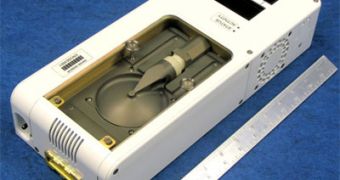Here, on Earth, bad air is not that much of a problem on a small scale, since one can always open a window to let fresh air in, or move to a different location in case the city's polluted air poses any threat to one's health. Unfortunately, astronauts aboard the International Space Station or those involved in manned missions on other planets will not be able to afford this luxury in the future, since they'll be confined to their headquarters.
Even more, the vast amount of experiments they perform, as well as the tight space they are forced to work in, increases the likelihood of the air quality getting worse. And this issue has already occurred on space stations like the ISS or MIR. This is why NASA is bent on providing the ISS with a device that will constantly monitor the air's condition and test the presence of potentially harmful compounds like the odorless carbon monoxide.
"This ENose is a very capable instrument that will increase crew awareness of the state of their air quality," shared former astronaut Carl Walz, director of NASA's Advanced Capabilities Division, the institution funding the development of ENose, quoted by ComputerWorld. "Having experienced an air-quality event during my Expedition 4 mission on the space station, I wish I had the information that this ENose will provide future crews. This technology demonstration will provide important information for environmental control and life-support system designers for the future lunar outpost."
The device is made up of 32 sensors continuously scouring for "fractional parts per million to 10,000 parts per million" of a number of chemicals, vapors and aerosols, exuding as a result of experiments or accidents. Based on the chemicals detected, the 4-kg (9-pounds) heavy, shoe box-sized device triggers specific responses. If the tests prove successful, ENose will certainly be included as an indispensable part of the future manned space missions or even colonies.

 14 DAY TRIAL //
14 DAY TRIAL //